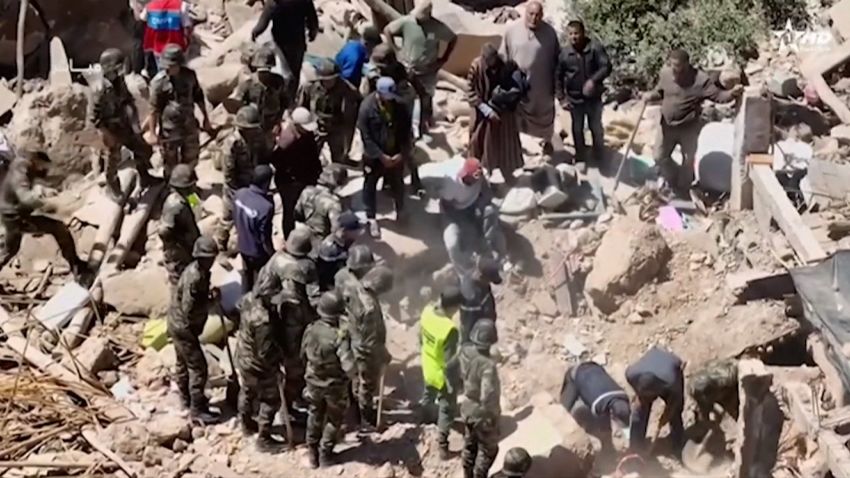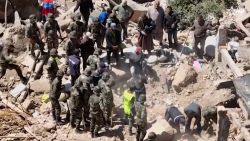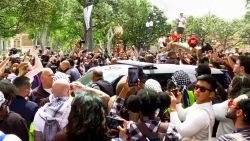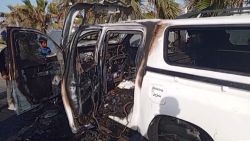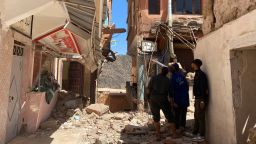Rescuers are searching through rubble and trying to reach isolated communities after a devastating earthquake struck Morocco, killing thousands and leaving more injured or unaccounted for.
The quake is the strongest to hit the nation’s center in more than a century, and its epicenter was not far from popular tourist and economic hub Marrakech.
At least 2,862 people have been killed in the disaster and 2,562 have been injured, state media said on Monday.
Here’s what we know so far.
When and where did the quake hit?
The earthquake struck at around 11.11 p.m. local time (6.11 p.m ET) on Friday. Its epicenter was located in the High Atlas mountain range, about 72 kilometers (44.7 miles) southwest of Marrakech, a city of about 840,000 people.
Its impact was felt far and wide, reaching as far north as Casablanca.
But it most severely damaged towns and villages near the base of the Atlas Mountains, while also ripping through the center and suburbs of Marrakech.
How strong was the quake?
The quake had a magnitude of 6.8, meaning it is classed as “strong.” It also struck at a relatively shallow depth, making it more destructive.
Morocco has suffered earthquakes in the past, but few in its history have been so powerful. This quake is Morocco’s deadliest since 1960, when an earthquake killed more than 12,000 people.
Earthquakes of this size in the region are uncommon, according to the US Geological Survey, but not unexpected. It noted that nine quakes with a magnitude of 5 or higher have hit the area since 1900, but none of them have had a magnitude higher than 6.
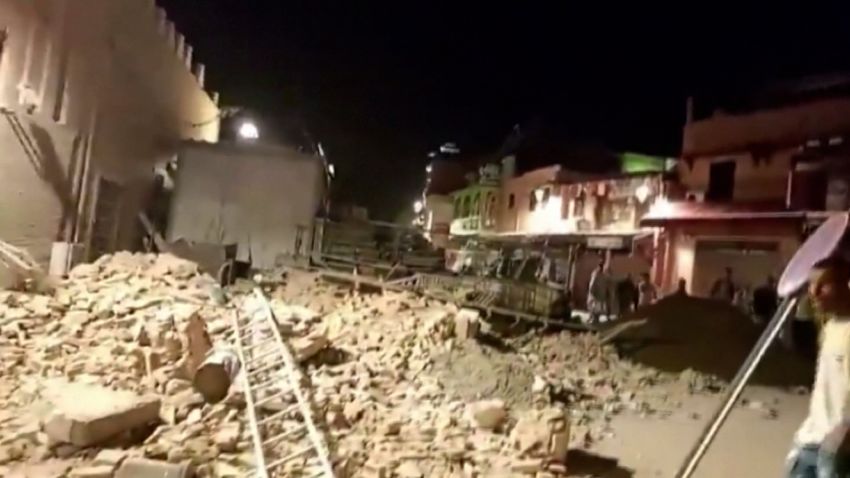
Where is the worst damage?
Nearly 1,500 people have died in the province of Al Haouz, where the quake was most devastating. The region, like many other badly affected locations, lies south of Morocco at the foot of the Atlas Mountains, and includes remote villages and settlements that have been difficult for rescuers to reach.
Eyewitnesses in the foothills of the mountains said some towns are completely destroyed, with almost all the homes in an area of the village of Asni damaged.
The scale of the quake’s impact is still becoming clear, but eyewitnesses CNN spoke to gave a sense of the destruction, especially in isolated villages that have been most badly hit.
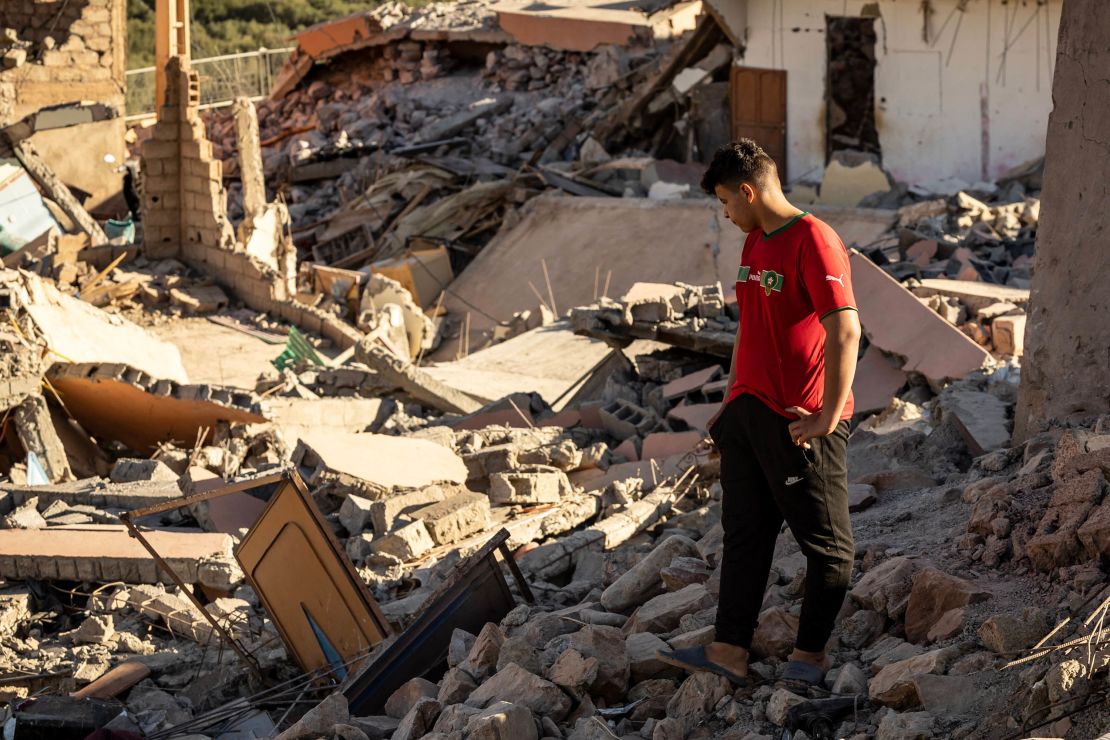
Soumia Sandoval, based in Los Angeles, California, told CNN she learned from family friends that their village at the base of the mountains was flattened by the quake. Mustapha Louaanabi, who also lives in the foothills of the Atlas Mountains, described the moment the earthquake struck, saying there were “loud, deafening noises” and it felt as if “a train was passing right in the middle of the living room.”
More than 400 meanwhile perished in the southwestern Moroccan city of Taroudant.
And more than 300,000 people have been affected in Marrakech and surrounding areas, according to the WHO. Historic sites have been damaged there; a small mosque at the heart of the Marrakech Medina in the city’s historical quarter almost entire collapsed.
The Marrakech Medina, a UNESCO World Heritage site, was hit by the quake. The Medina district dates back centuries and is enclosed by walls built of red sandstone. Many of the old buildings inside the Medina have been damaged and some have collapsed entirely.
Outside the city, images showed the 12th century Tinmal Mosque in the High Atlas mountains had been badly damaged.
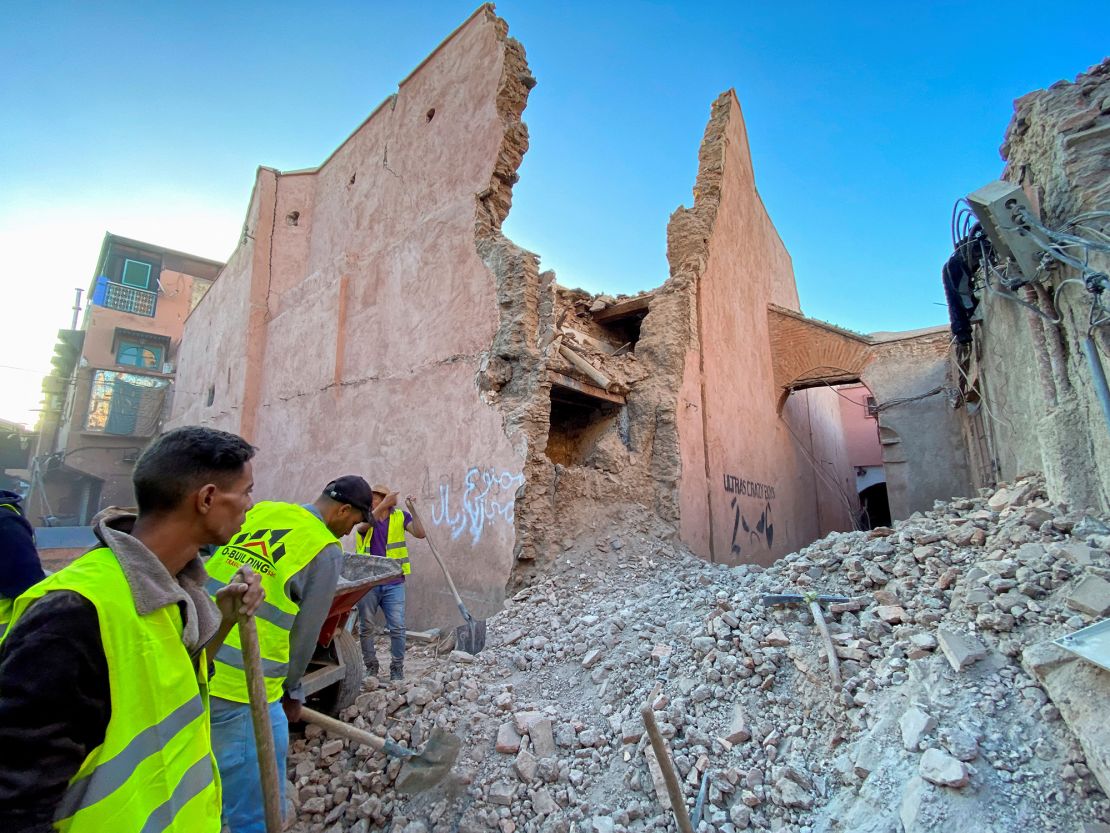
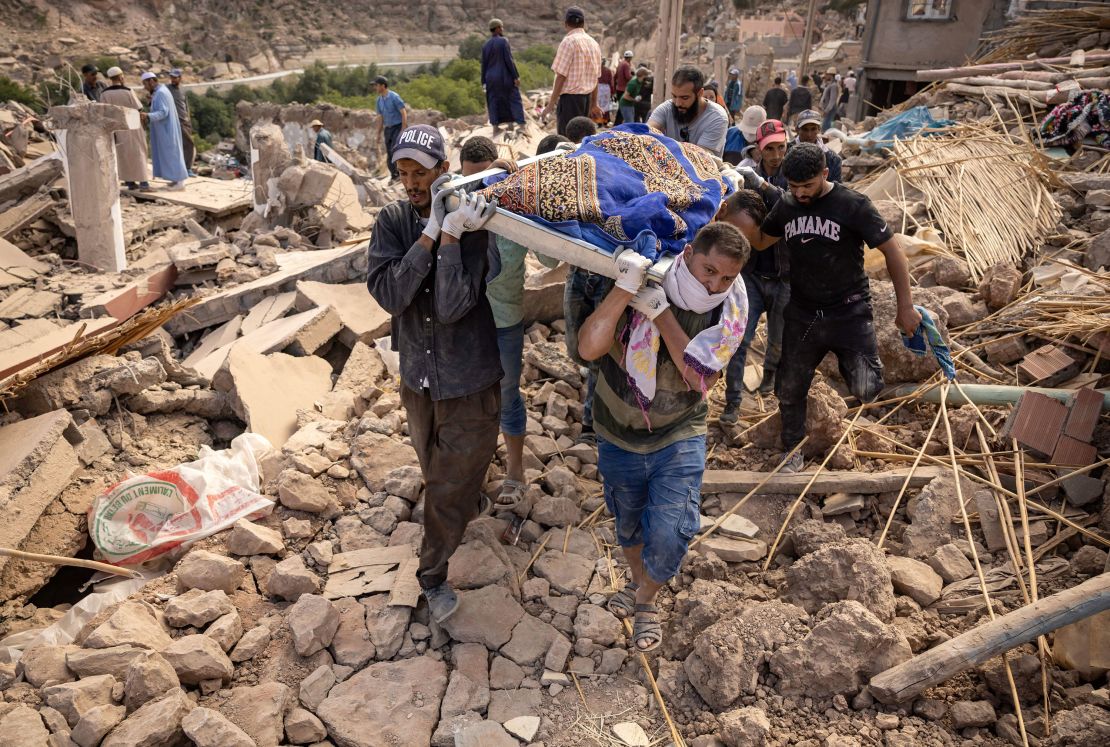
What’s happening on the ground?
Emergency workers were deployed to affected regions, despite some roads being damaged or blocked by debris. Some remote villages on the foothills of the mountain have been hard to access.
Mohammed, 50, from the town of Ouirgane, lost four family members in the quake. “I managed to get out safely with my two children but lost the rest. My house is gone.” he said.
Rescue operations are still ongoing. “We are out in the streets with authorities as they try to pull the dead from the rubble. Many many people were transported to hospital in front of me. We are hoping for miracles from the rubble” he said.
But destroyed roads to villages are making it hard to get aid into some of the hardest-hit regions, a Moroccan government official told CNN.
“The rescue efforts are ongoing to reach the difficult areas. The earthquake struck mountainous areas that are scattered geographically and it’s difficult to reach these areas in some cases,” the official told CNN. Authorities are using helicopters to reach the worst-hit areas and machinery to remove the rubble from the impassable roads, the official said.
Inside and outside Marrakech, many residents have spent two nights on the streets, afraid to return to their homes. In the hard-hit central village of Moulay Brahim, south of Marrakech in the Atlas Mountains, CNN found a family living in a makeshift camp on a soccer field, with authorities telling them it could be a week before they can go home. Firefighters are leading rescue efforts but some buildings are too dangerous to enter.
Morocco’s government said it had activated all available resources to tackle the quake and urged people to “avoid panic.”
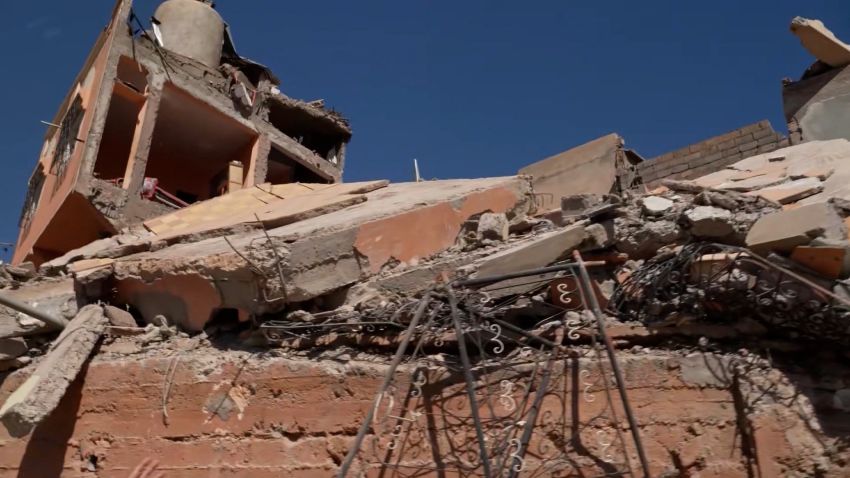
King Mohammed VI of Morocco ordered that a relief commission be set up to distribute aid to survivors, including orphans and people who lost their homes in the disaster.
He also declared three days of national mourning and ordered mosques nationwide to hold funeral prayers, known as “Janazah” prayers, at noon on Sunday for those killed.
What’s the international reaction been?
Many world leaders have expressed their commiserations, as well as offered support to Morocco.
France has activated emergency aid from local government funds to help with humanitarian operations in quake-affected regions, and will give 5 million euros ($5.3M) to non-governmental organizations operating in Morocco to aid rescure efforts, the government said Monday.
A Spanish search and rescue team, made up of 56 soldiers and four dogs, landed in Marrakech to help in the quake’s aftermath, according to Spain’s defense ministry.
Turkey, which was hit by a devastating earthquake that killed tens of thousands earlier this year, said it was ready to send 265 personnel and 1,000 tents to Morocco to support aid efforts.
Britain said it has deployed 60 search and rescue specialists, including four search dogs, rescue equipment and a medical assessment team to Morocco.
Algeria, which severed diplomatic ties with Morocco in 2021 and closed its airspace to all planes registered in Morocco, said it would reopen its airspace for humanitarian aid and medical flights going to and from the Arab nation.
Meanwhile, the Red Cross Society of China said Monday it will send $200,000 in emergency humanitarian cash assistance to the Moroccan Red Crescent to support rescue and relief work.
The United Nations and US President Joe Biden have also said they are ready to provide assistance, and the World Bank has said it has offered the country its “full support.”
CNN’s Eyad Kourdi and Pierre Meilhan contributed reporting.

